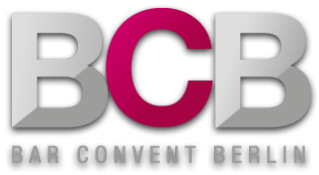"Common Sense, but not common Practice"
© Shutterstock
It could be so simple after all: Why is it that people often fail to do simple, basic things that would simplify a bar and the working lives of its bar team? Angus Winchester offers some food for thought.
In my work as a consultant and educator, I have discovered a number of phrases that put my clients at ease when I drop truth bombs on them or ask them tricky questions. Phrases like "It's not your fault, but it's your problem" or "Work ON your business, not just IN your business" often bring managers and owners a new attitude and calm them down a bit. But the phrase that always brings about the most change is "It's common sense, but not common practice", because it shows how often we fail to do simple and basic things that would improve a business and the lives of the people in it. So here are the three most sensible, but rarely done, low-cost or no-cost ideas that will have the biggest impact on your company culture:
1. Get in the line-up!
A pre-shift meeting - also called a "line-up" - is an amazing and necessary practice that brings almost immediate benefits. Every day at a set time (just before the bar opens and when key staff are available) only 10-15 minutes of time is needed to motivate, train and prepare the team for success. However - and here comes another of my dynamic phrases - it is simple but not easy to do and it takes some work to perfect.
Team warm-up for the evening
Use this time to update the team on the day's business. Are there any special promotions or guests arriving that evening? Are you missing a product or perhaps there are even new products? Is there anything that brings challenges or opportunities that the team can help with? By sharing beforehand how the evening will go, staff can better prepare and feel more involved in the business.
Guide and share
Also use the meeting to instruct the team on their tasks. This can be a simple check to ensure that all team members are doing the tasks in the same way. This can also include, for example, experienced colleagues sharing their best tips for excellent service, or pointing out important behaviours. "Instructing" is the educational part, and if you make it brief, regular and focused, over time it will greatly improve the training system in your bar.
Acknowledge successes
Also, use this time to recognise successes - whether individual or of the team. By reading out good reviews from guests or publicly highlighting good behaviour you've observed, you can show your team that you care about the little things too. Too often we focus on the things that are not going well. However, if you highlight the good, your staff will also see more of it and create a positive environment.
Motivational kick for the shift
Finally, use the team meeting to inspire your staff and prepare them for a good shift by putting a smile on their faces and spurring them on to new action. For example, use quotes, pictures or music that inspire you. Encourage your teammates to make their own motivational contributions, which will also help to entertain them. These 10 to 15 minutes can energise your business, and although they cost nothing, they can be worth so much and contribute to team bonding.
2. New employees: check references
The second common sense practice is to check references when you are hiring someone. This is very important because, after all, you're not hiring an ice machine that you can pull off the last bar and just plug into yours. Even though the law makes it difficult for a former employer to give out a lot of information, simply calling someone who has worked with your potential new employee can go a long way. Never just use the person given as a reference, but also ask for other people who worked in the same bar at the same time. Explain to them what skills are required and ask them if the potential new employee matches them. This way you can make sure that only the perfect person is hired in your company. So simple and yet it is so rarely done.
3. Behaviour in problem situations
The last simple thing, is a simple and clear answer to the question: what do you do when something goes wrong? In many companies it's "tell the manager and he'll deal with it", but by having a clear, consistent and easy to remember strategy, the team can become heroes themselves by solving problems without having to go to a manager. The best companies have a service recovery strategy and often rely on an easy-to-remember phrase. From LEARN ("Listen. Empathise. Apologise. Resolve. Notify") to LATTE ("Listen. Acknowledge. Take action. Thank the guest. Explain what you did") they are easy to remember and easy to implement.
The world of hospitality, and the bar world in particular, has become so much more sophisticated and complex in the last 20 years, but often the simple and basic things are overlooked in the quest for the new and creative. However, the best companies and leaders have mastered the basics and use every reasonable tool at their disposal to set the team and the company on the path to success.
Looking for more drinks industry insights?
Join the entire industry at BCB
